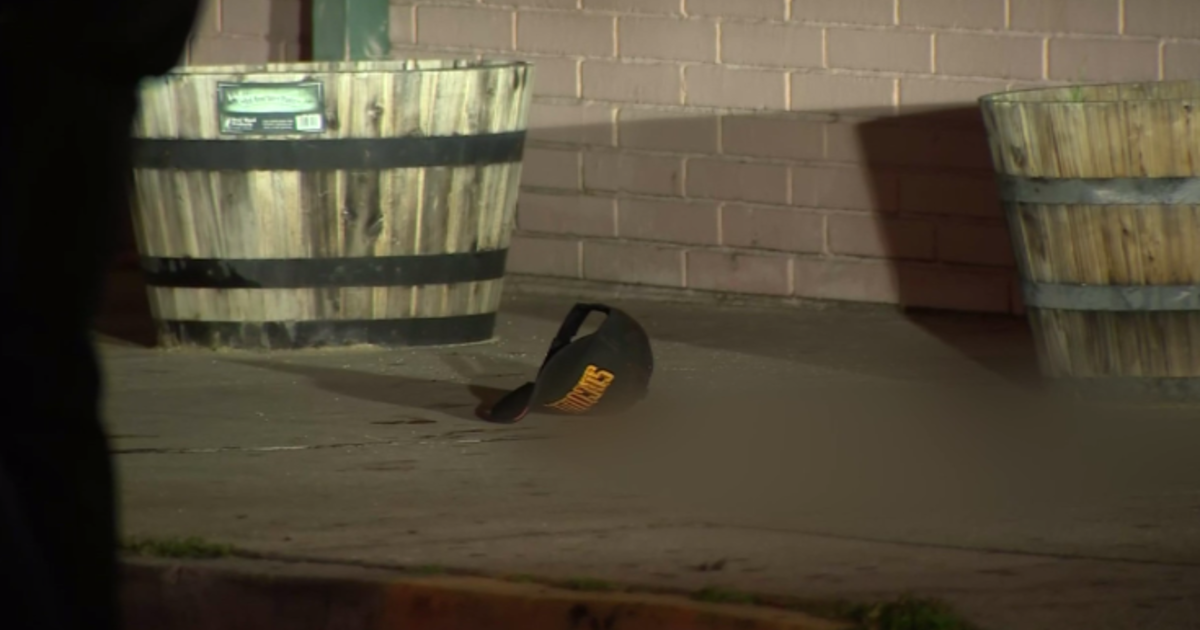On-Time State Budget Carries Risky Assumptions
SACRAMENTO (AP) — California lawmakers may have passed a budget on time to get paid, but their plan to close a $15.7 billion shortfall carries a big risk on the assumption that voters will approve Gov. Jerry Brown's tax increase this fall.
Democratic lawmakers, who passed the budget on a majority vote without Republicans, are relying on tax increases to bridge more than half of the projected deficit even though the latest poll showed voters divided. The Field Poll earlier this month found that the Democratic governor's proposal is leading with only a 52 percent to 35 percent margin — even before the campaign for it has begun.
The budget could fall apart depending on what happens in November, said Mike Genest, who served as finance director under former Gov. Arnold Schwarzenegger during the height of the recession. Last year, Brown and Democrats used overly optimistic revenue assumptions and projected the state would rake in an extra $4 billion. That money never materialized, forcing the state to confront a bigger deficit now.
"Nobody should hope that if you pass this budget and the voters pass the taxes in November that that's it, California won't have any budget problems in the future," Genest said. "That's certainly not true."
Democrats passed a $92 billion spending plan on Friday largely modeled after Brown's proposal in order to meet their constitutional deadline for getting paid. It was unclear whether Brown would sign it.
"What they're doing is committing fiscal malpractice by assuming that this tax is going to pass," said Jon Coupal, president of the Howard Jarvis Taxpayers' Association, which joined other business groups last week in launching a campaign against the governor's proposal.
Sen. Lou Correa, a Democrat from Anaheim, said it's good that voters will have the ultimate choice. "That's direct democracy."
Assemblyman Jim Nielsen, a R-Gerber, who is vice-chairman of the Assembly Budget Committee, called the budget unbalanced and irresponsible because it lacked long-term reforms such as a spending cap and pension reform.
"Built into the budget are more gimmicks and tricks than there have been before," Nielsen said.
Brown has projected the state will raise $8.5 billion in the new fiscal year starting July 1 by increasing the statewide sales tax by a quarter cent to 7.5 percent for four years and boosting the income tax on people who make more than $250,000 a year for seven years. Of that, $5.6 billion would provide direct relief to the state's general fund and $2.9 billion would increase funding for schools and community colleges.
The governor has said his proposal is a critical step toward restoring the state's fiscal health and would prevent serious cuts to education and public safety.
If voters reject the tax increases, the budget includes about $6 billion in automatic spending cuts, almost all of which would fall on K-12 schools. The contingency plan would shorten the public school year by as much as three weeks, make deeper college cuts and reduce funding for beach lifeguards and game wardens.
At the same time, the governor is facing competition from another tax measure. Wealthy Los Angeles attorney Molly Munger has proposed raising income taxes on nearly all Californians on a sliding scale to prop up struggling schools.
While Brown's proposal would backfill the state's general fund, support schools and guarantee funding to local governments for public safety, Munger's 12-year tax increase would provide only some relief to the state budget in the first four years and lawmakers would have no control over the school funds.
Neither initiative has yet qualified for the November ballot.
Leading up to Friday's budget vote, Brown found himself at odds with lawmakers in his own party over about $1.2 billion in cuts to welfare, child care, in-home support and college aid. Brown said deeper cuts through restructuring social programs for the poor were necessary to balance the state's finances this year and into the future.
Democratic lawmakers complained that the governor was jeopardizing his tax initiative by refusing to sign off on their version of the budget. They said voters may read a spitting match between the governor and the Legislature as politics as usual rather than elected officials working together.
"He has to choose," Assemblyman Charles Calderon, D-Whittier, said Thursday. "Does he want to look tough, like he's scolding and whipping the Legislature into shape? Or does he want the initiative to pass?"
Brown proposed cutting $880 million in CalWORKS, the state's welfare-to-work program, by cutting off parents after two years instead of four if they do not meet work requirements and cutting grants by 27 percent in families where only the children are eligible for grants.
Democratic lawmakers and advocates fear that would drive families into homelessness. They say a family of three in which only the child qualifies for assistance would see benefits fall from $516 to $375 a month, an amount equal to 24 percent of the federal poverty level.
Democrats are only willing to cut $428 million by extending existing cuts to counties to provide work training and child care.
The two sides disagree on how to distribute money to local governments that once went to community redevelopment agencies. They also disagree on how much the state should have in reserves for emergencies such as fighting wildfires.
Republicans, whose votes are no longer needed as a result voter-approved changes, complained that budget negotiations were being held in secret. They said they had not been given adequate time to review the budget bills, many of which were published one day before the vote, and they refused to vote on any of the budget bills.
(© Copyright 2012 The Associated Press. All Rights Reserved. This material may not be published, broadcast, rewritten or redistributed.)



